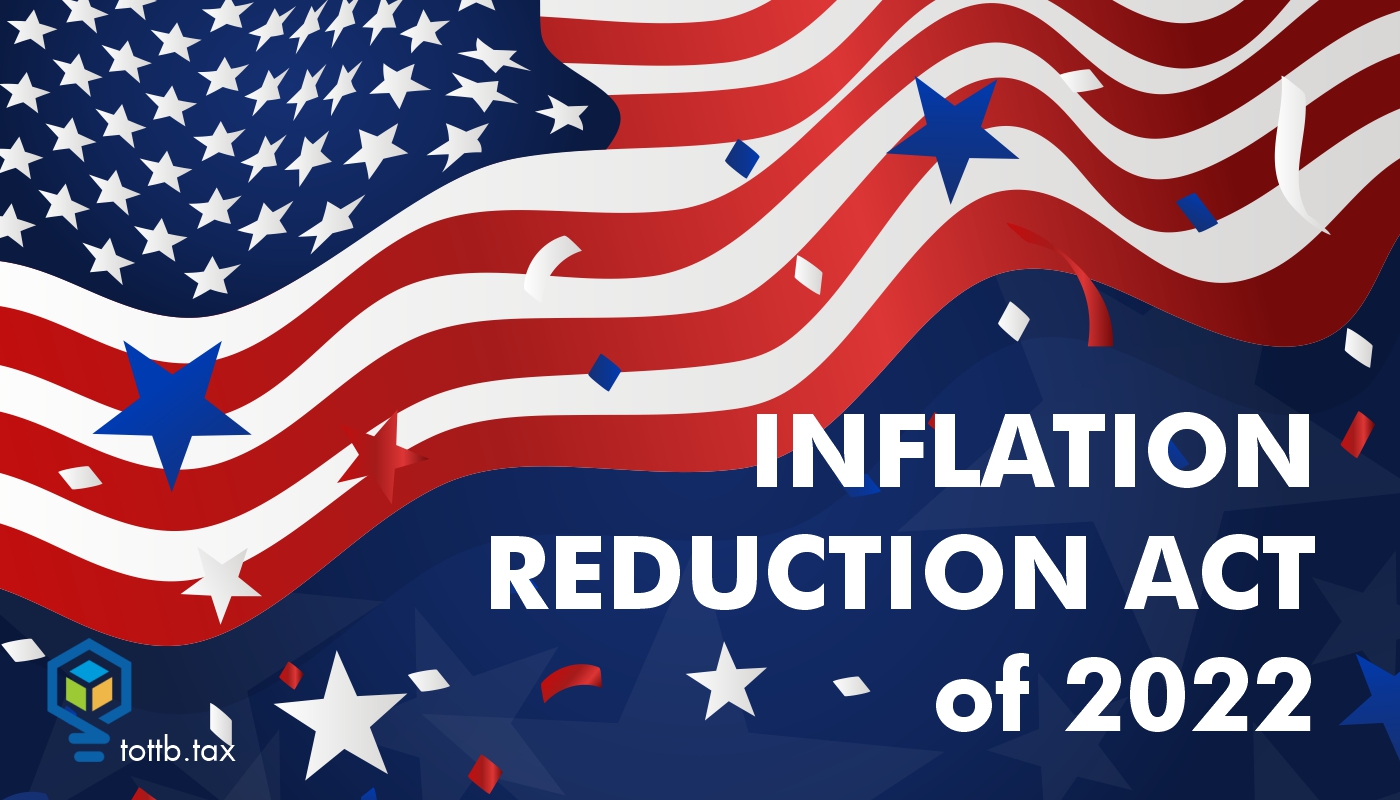CURRENT EDITION

Tax Tales I Let Slip in 2025: From Whistleblowers to Easement Woes and Beyond
One of my greatest frustrations as a tax writer is that I just don’t have the time to cover everything that I notice. Early in my blogging career, when I was younger and had more energy, I set myself on a Monday, Wednesday, Friday schedule like the college professors I envied. Even that did not keep up with everything I noticed, so periodically I would do a post that had short blurbs about interesting things I didn’t dig further on. Here is an example from 2010 of a post that covers an entity not considered a church by the IRS, S corp shareholder basis issues, definition of alimony and two Chief Counsel Advices on TEFRA issues. So here are some things for 2025, that I opened a file on but never managed to make an article with.
READ MOREEverything You Need to Know About the Fair Tax and More
As you are in the heat of another tax season, probably without enough help, you don’t have time to study legislation especially proposed legislation prospectively effective in 2025 that is extremely unlikely to pass. But you may have clients or friends or relatives who expect you to know about this sort of thing. Fortunately, you have me who retired from active practice right at the end of 2018 and has time for this sort of nonsense. So here is more than you need to know about the proposed Fair Tax Act of 2023.
Read MoreYes, Virginia, There is a Tax Bankruptcy!
In society, bankruptcy no longer carries the humiliating stigma of failure ; which is why there are hundreds of thousands of bankruptcy filings each year. Interestingly enough, filings have been dropping dramatically since 2018. The total individual and business filings for fiscal year 2022 are nearly half of those from 2018. The statistics don’t include specific information about how much tax debt was extinguished in bankruptcy. Filing bankruptcy is not for everyone. It can be a viable option for those people whose tax debt meets certain criteria. The following is a basic overview of the concept...
Read MoreNavigating the Crypto Collapse
Many taxpayers lost substantial amounts of money in the crypto collapse of 2022, but what tax consequences come with that loss? Taxpayers may be expecting to be able to deduct the full amount of their crypto losses, and may, unfortunately, find out it isn’t as straightforward as they would like...
Read MoreImportant to Maintain Substantiation for Carryovers
If you build a mini business empire and it subsequently fails, a small consolation prize might be a net operating loss carryover that will shelter some or all of your more modest income for many years. Of course NOLs are only one among many carryovers that need tracking. In my experience the tracking often leaves much to be desired. Changes in tax preparers or even software can result in the loss of valuable carryovers. But that is not the worst of it...
Read MoreJust Good Business – Find Your Audience
The first rule of good writing is “Know your audience.” I would argue that this rule applies to your tax practice as well. Tax professionals, it's time to find your audience. If you want to be the best tax professional you can be, while preserving your physical and mental health, take a moment (or several) to define your ideal client. Your ideal client is your audience. Deciding which clients you want to work with will serve you well during tax season and beyond...
Read MoreInflation Reduction Act 2022 Energy Tax Incentive Considerations
The Inflation Reduction Act of 2022 (P.L. 117-169; 8/16/22) could easily have been named the Energy Incentives Act of 2022. Over 20 provisions in the Act provide tax credits or special deductions to encourage the production and use of clean energy. The cost of these energy provisions over ten years is about $271 billion. In contrast, the ten-year revenue projection for the corporate AMT and one percent excise tax on certain stock buybacks is about $296 billion. Most of the energy credits are for businesses and are specialized such as for the production of clean hydrogen or sustainable aviation fuel or zero-emission nuclear power production. Four credits are designed for individuals including three revised credits and one entirely new one (§25E, Previously-owned clean vehicle credit). This article highlights key aspects of the credits and special energy provisions as a whole, offers tips for dealing with the complexities that exist in these IRA 2022 rules, and provides suggestions to help individuals obtain the greatest tax savings from the new and revised energy credits and rebates. A few charts are included to aid in understanding these credits.
Read More“Retired” CPAs Touring America in an RV
I recently wrote a sort of case study to illustrate the economics of RV tourism . I thought that my fellow tax pros might appreciate a little more analysis of the numbers. I also have some observations on working out of an RV, because I wasn’t actually entirely retired...
Read MorePotential Pitfalls of Digital Assets and the “Kiddie Tax”
Those of us who are parents of Gen Z children know it’s “no cap ” that we have no clue what our children get up to on the internet. My son, for example, makes a lot of YouTube videos of our cat for some reason. Thankfully, he hasn’t monetized his videos (yet!), so they don’t carry any tax consequences. However, many taxpayers are finding out that their dependents have spent their time in the metaverse, defi gaming, or nfts, and as a result have engaged in dozens to thousands of taxable transactions without even being aware it. Those transactions may also trigger the “Tax on a Child's Investment and Other Unearned Income,” also known as the “Kiddie Tax.” Read on to learn more...
Read MoreNOT A MEMBER YET?

SUBSCRIBE TO GET ALL OF OUR
GREAT ARTICLES AND RESOURCES!
CURRENT EDITION

Tax Tales I Let Slip in 2025: From Whistleblowers to Easement Woes and Beyond
One of my greatest frustrations as a tax writer is that I just don’t have the time to cover everything that I notice. Early in my blogging career, when I was younger and had more energy, I set myself on a Monday, Wednesday, Friday schedule like the college professors I envied. Even that did not keep up with everything I noticed, so periodically I would do a post that had short blurbs about interesting things I didn’t dig further on. Here is an example from 2010 of a post that covers an entity not considered a church by the IRS, S corp shareholder basis issues, definition of alimony and two Chief Counsel Advices on TEFRA issues. So here are some things for 2025, that I opened a file on but never managed to make an article with.

The IRS in 2025: A Snapshot of Reality
The IRS is not the same agency we dealt with a decade ago, or even three years ago. The pandemic accelerated operational strain, exposing long-standing infrastructure weaknesses while also prompting overdue investment and modernization. Some areas have improved meaningfully, including digital tools, faster account updates, and improved phone service during filing season. Other areas, however, feel frozen in time. Correspondence units remain slow, backlogs persist, and automated notices often fail to reflect what is actually happening on a taxpayer’s account. This article outlines the practical realities of working with the IRS in 2025, what strategies are working, what remains broken, and how to set clear, healthy expectations so you can deliver results without burning out.

The IRS in 2026: A Strategic Field Guide for Tax Professionals
As we head into the 2026 filing season, tax professionals are operating in an environment unlike any we have seen in recent memory: a smaller and more automated IRS, the new OBBBA, and rapid experimentation with AI-enabled tools inside the Service. This field guide is designed to separate what we know for sure from where the IRS is likely to move next, and to translate both into practical planning moves. It does not predict the future; instead, it offers a structured way to think about enforcement, documentation, and client strategy when the rules, the technology, and the politics are all in motion.









